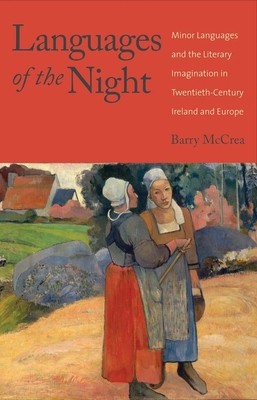
- We will send in 10–14 business days.
- Author: Barry McCrea
- Publisher: Yale University Press
- ISBN-10: 0300185154
- ISBN-13: 9780300185157
- Format: 14.5 x 21.6 x 2 cm, hardcover
- Language: English
- SAVE -10% with code: EXTRA
Reviews
Description
In the first decades of the twentieth century, rural populations throughout Europe changed the language they used in everyday life, abandoning their traditional vernaculars--such as French patois, local Italian dialects, and the Irish language--in favor of major metropolitan languages such as French, Italian, and English. .
In this book, Barry McCrea argues that the sudden linguistic homogenization of the European countryside was a key impulse in the development of literary modernism. The decline of rural vernaculars caused these languages to become the objects of powerful longings and projections. Se n R ord in in Ireland and Pier Paolo Pasolini in Italy reshaped minor languages for use as private idioms of poetry; the revivalist idealization of Irish as a lost utopian language deeply affected the work of James Joyce; the disappearing dialects of northern France seemed to Marcel Proust to offer an escape from time itself. Drawing on a broad range of linguistic and cultural examples to present a major reevaluation of the sources and meanings of European literary modernism, Barry McCrea shows how metropolitan literary culture was fundamentally shaped by the vanishing vernaculars of the European countryside.EXTRA 10 % discount with code: EXTRA
The promotion ends in 14d.17:26:12
The discount code is valid when purchasing from 10 €. Discounts do not stack.
- Author: Barry McCrea
- Publisher: Yale University Press
- ISBN-10: 0300185154
- ISBN-13: 9780300185157
- Format: 14.5 x 21.6 x 2 cm, hardcover
- Language: English English
In the first decades of the twentieth century, rural populations throughout Europe changed the language they used in everyday life, abandoning their traditional vernaculars--such as French patois, local Italian dialects, and the Irish language--in favor of major metropolitan languages such as French, Italian, and English. .
In this book, Barry McCrea argues that the sudden linguistic homogenization of the European countryside was a key impulse in the development of literary modernism. The decline of rural vernaculars caused these languages to become the objects of powerful longings and projections. Se n R ord in in Ireland and Pier Paolo Pasolini in Italy reshaped minor languages for use as private idioms of poetry; the revivalist idealization of Irish as a lost utopian language deeply affected the work of James Joyce; the disappearing dialects of northern France seemed to Marcel Proust to offer an escape from time itself. Drawing on a broad range of linguistic and cultural examples to present a major reevaluation of the sources and meanings of European literary modernism, Barry McCrea shows how metropolitan literary culture was fundamentally shaped by the vanishing vernaculars of the European countryside.

Reviews